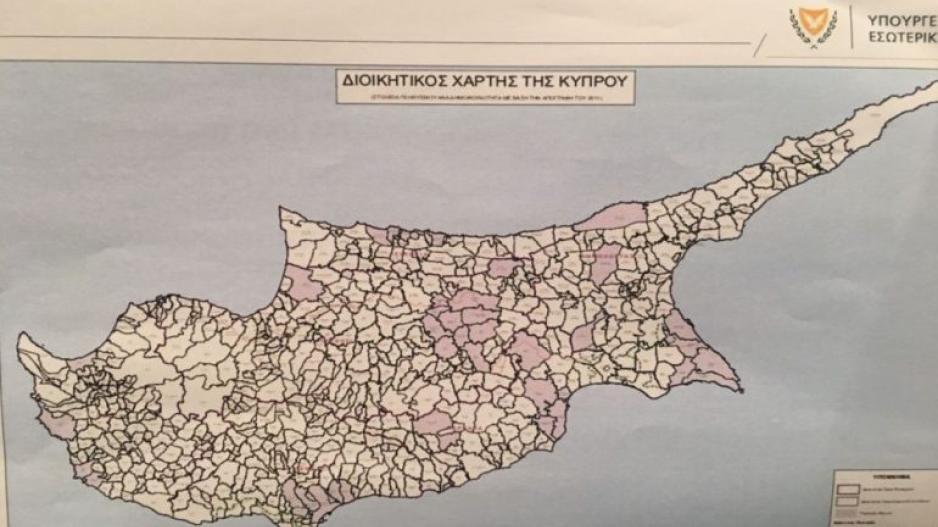Cyprus Enters New Era with Local Government Reform
Ambitious Changes Aim to Enhance Service Quality and Transparency
Local Government in Cyprus enters a new era today with the implementation of the much-debated reform, aiming for ambitious goals while facing significant challenges.
The reform seeks to ensure immediate and high-quality service to citizens, financial and administrative independence for local authorities, and increased transparency. It aims to address the dysfunctions of the previous system, creating stronger, financially sustainable, and more flexible municipalities and communities.
However, the first few months of the new local government structure are expected to come with some difficulties, mainly regarding the transfer of responsibilities to the District Administration Organizations.
The reform is described as a dynamic, ongoing process, with continuous changes, adaptations, and clarifications in the relevant legislation. Further discussions on revenue and structure changes for municipalities, as well as the powers of elected officials, are expected to start in September.

The new local government structures were designed to reduce operating costs and service expenses, provide higher quality services to citizens, and achieve financial and administrative autonomy. However, time will tell if these expectations will be met.
In the five District Administration Organizations of Nicosia, Limassol, Larnaca, Paphos, and Famagusta, services for water supply, sewage, and waste management, as well as development licensing, will be consolidated. The goal is to create economies of scale, which is expected to reduce operating costs and offer citizens unified services for all related permits.
Additionally, 20 new municipalities were created through the merger of 30 existing municipalities and 50 communities, aiming to save resources that will enable the financial stability and independence of the municipalities. The funding structure for municipalities is drastically changing, securing revenue from annual car circulation fees, eliminating dependency on state grants, and increasing income.
Transferring many responsibilities from the central government to municipalities is also expected to bring services closer to the citizen. For the first time, a system of transparency and control is being introduced, with the establishment of preventive internal audit units in each municipality and the publication of all decisions online.
However, the number of vice-mayors is tripling from 30 to 93, and municipal councilors are increasing by 15, reaching a total of 404, which is expected to raise costs, along with the salaries of the DAO heads.
Moreover, as announced by the Minister of Interior, Constantinos Ioannou, state grants to municipalities and communities will reach €117 million in 2024, an increase of approximately €46 million compared to pre-reform. In subsequent statements, Mr. Ioannou mentioned that the cost of the reform will exceed €117 million as budgets do not cover the requirements. For example, the new District Administration Organizations (DAO) must be financially autonomous, but 60% of the revenue from licensing must be returned to the municipalities, making their financial viability challenging.
Regarding communities, 30 Local Service Complexes are being created to serve groups of neighboring communities with specialized staff, offering secretarial, accounting, technical services, waste collection, and other essential functions. The Local Complexes will have a significant number of staff, unlike the insufficient number maintained by individual communities in the past. The cost for employing this staff is expected to reach €3 million and will be covered by the Government.

From July 1, 2024, all procedures concerning development licensing, now transferred to the DAOs, will resume. The Minister of Interior has described this transition as the most significant challenge of the reform, as three different licensing bodies with three different cultures are now unified into one. A smooth transition to the new regime is considered critical since development licensing is a crucial sector of the Cypriot economy.
>>Electronic Submission and Review of Urban Planning Applications Starting July 1<<
From July 1, all applications will be submitted electronically through the "Ippodamos" system, for which staff training has already been conducted. Application submissions had ceased for about two weeks due to the transfer and transition procedures to the new system.
The existing staff dealing with licensing in municipalities, District Planning Offices, and District Administrations have been transferred to the DAOs to gradually establish the licensing sector within the DAOs until the Organizations announce positions based on the organizational charts. A total of approximately 330 people have been transferred to the DAOs.
Since last February, an additional 85 Temporary Workers have been hired, increasing the organizations' workforce by about 30%. A package of 22 measures was also implemented, primarily aimed at simplifying the licensing system and speeding up the process of reviewing and issuing permits. At the same time, the Ippodamos Information System was adapted to the new requirements.






